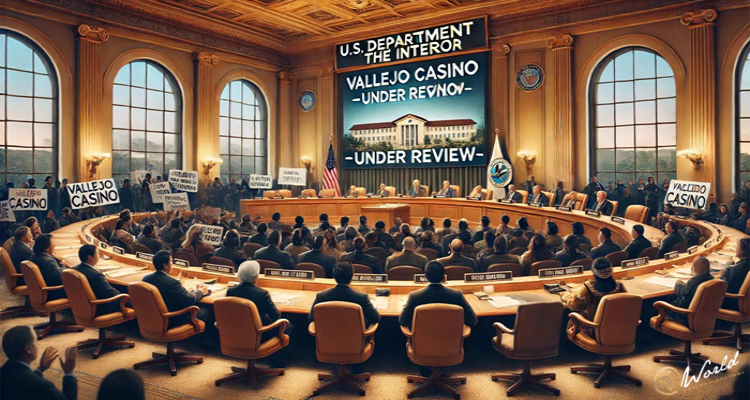In a significant turn of events, the Scotts Valley Band of Pomo Indians’ proposed casino in Vallejo, California, is under renewed scrutiny by the U.S. Department of the Interior (DOI). This reevaluation follows formal litigation initiated by a trio of local tribal communities, who argue that the approval process was flawed and rushed.
Background of the reevaluation:
Recently, the DOI decided to reexamine the original Jan. 10 endorsement of the casino project. The decision was communicated via letter sent by Scott J. Davis, Senior Advisor to the Secretary of the Interior, indicating a temporary rescission of the Gaming Eligibility Determination pending further review. This reevaluation will consider additional evidence presented after the 2022 Remand that the DOI is concerned may have been overlooked.
In addition to gaming, plans for the 400,000 sq ft mega casino complex, a $700 million initiative, include residential areas, an administrative office, and a dedicated preserve for local wildlife on a 160-acre site adjacent to Interstate 80 and Highway 37. The development reportedly aims to bolster the tribe’s economic independence and provide substantial employment opportunities, with projections suggesting the creation of numerous jobs and significant economic benefits to the region.
The letter from the DOI temporarily rescinding its gaming eligibility determinationd, dated March 27, 2025, was sent just two days after United Auburn Indian Community (UAIC) filed a lawsuit in federal court challenging the DOI’s January approval of the Scotts Valley Band of Pomo Indians’ casino project in Vallejo. Meanwhile, the Yocha Dehe Wintun Nation and the Kletsel Dehe Wintun Nation, filed a companion lawsuit, which also looks to overturn the federal executive department’s approval of the project, citing concerns over the expedited approval process under the previous administration.
Legal challenges claim that the Department failed to engage properly with affected tribes, violating longstanding policies intended to ensure inclusive and transparent decision-making.
The Yocha Dehe Wintun Nation owns and operates Cache Creek Casino Resort in Brooks. It is one of Northern California’s largest casino-resort destinations. The Kletsel Dehe Wintun Nation in a non-gaming tribe.
Yocha Dehe Chairman Anthony Roberts expressed approval of the reconsideration, emphasizing the importance of a transparent and equitable process that respects all tribal voices. “We have sought a fair decision-making process for over a year. It’s distressing that the previous administration overlooked these principles,” Roberts commented, highlighting the emotional and cultural significance of the disputed lands.
Statements from tribal leaders:
Concurrently, Chairman Shawn Davis of the Scotts Valley Band expressed disappointment over the need to revisit a decision he believes was already justified. “Our tribe’s right to restore gaming operations on our ancestral land is supported by thorough investigations and past verdicts,” Davis stated, asserting confidence in the merits of their case.
According to the Vallejo Times-Herald, the Department’s move to temporarily halt the project’s progress reflects its authority under 43 C.F.R. § 4.5, which grants the Secretary of the Interior extensive powers to reevaluate departmental decisions. The letter from Davis underscored the seriousness of the concerns raised by competing tribes, noting that the reconsideration will address potentially overlooked evidence crucial to a fair reassessment.
The ongoing disputes underscore the complex dynamics of tribal sovereignty, economic development, and cultural preservation intersecting at the heart of this casino project. As the community awaits further developments, the ultimate outcome will significantly impact the economic landscape and cultural heritage of the region.


